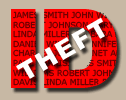Your Credit Score is the Score YOU Need to Know:
Your Credit Score is a number assigned to you to assess the risk a lender would likely have if they loaned you money. You can get your score for a fee from all three Credit Bureaus. Each of the three bureaus formulate their own score therefore you will likely have different scores from each bureau depending on the information contained in your credit report at that respective bureau.
Credit Scores help vendors assess credit risks more fairly because they are consistent and objective. Consumers also benefit from this method. No matter who you are as a person, your credit score only reflects your likelihood to repay debt responsibly, based on your past credit history and your current credit status.
Basis for your credit score:
| Types of Credit in use | 10% |
| New Credit | 10% |
| Length of Credit History | 15% |
| Amounts owed | 30% |
| Payment History | 35% |
Who can access your file?
- anyone you authorize
- creditors you ask for credit
- potential employers
- insurers
- certain government agencies - i.e., student loan providers
- people with a legitimate business purpose related to a credit transaction: collectors, insurance companies, car salesman, landlords, and banks
Major Problem - It isn't what Big Brother knows about you, it is what he does not. The data on credit reports are often inaccurate or out-of-date. Surveys of credit bureau data reveal a significant amount of inaccurate data.
Mistakes occur most often because of similar names or mistyped Social Security Numbers. Credit Bureaus simply compile data, they do not dig it up unless they are paid to do an investigative credit report. Be sure to check your credit at least once a year with all three major Credit Bureaus.
| Equifax | www.equifax.com |
| Experian | www.experian.com |
| TransUnion | www.transunion.com |
